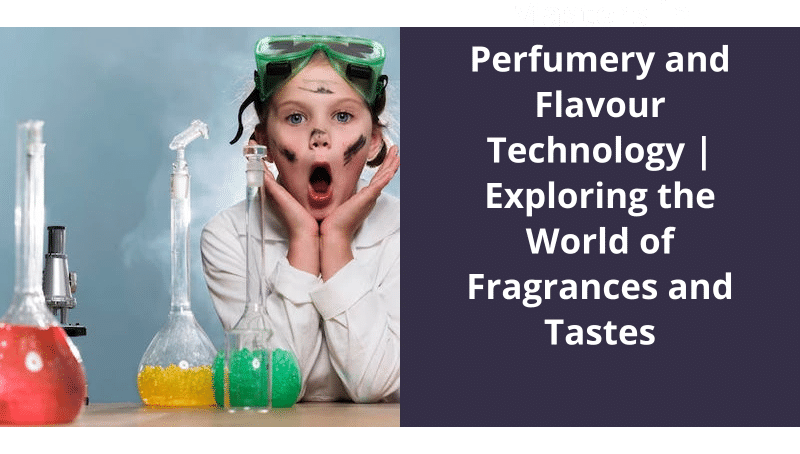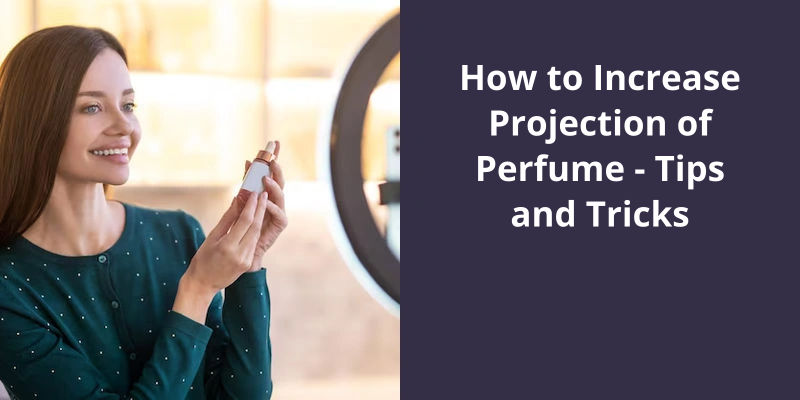A Masters in Perfumery and Flavor Technology is an advanced educational program that equips students with a comprehensive understanding of the creative and scientific aspects of fragrance and flavor development. Through this program, students gain insights into the process of creating, testing, and marketing scents and tastes for a variety of products ranging from perfumes and cosmetics to food and beverages. Alongside, they learn about the application of different technologies in this field. Studying this master’s degree provides an in-depth knowledge of chemistry, sensory evaluation, marketing, and other relevant areas, ensuring a holistic approach to the world of perfumery and flavor technology.

How Do You Become a Perfumer?
Becoming a perfumer isn’t an easy feat and requires a combination of skills and education. One of the critical skills needed is an exceptional sense of smell. As a perfumer, your nose serves as your most valuable tool in creating beautiful and unique fragrances. Therefore, it’s crucial to train your sense of smell and hone it over time to be able to identify different scent notes and combinations.
Studying chemistry and integrating a perfumery school in one of the famous perfumery houses is also an essential step in becoming a perfumer. This combination of knowledge and practical training provides a more comprehensive understanding of the perfumery industry and the science behind fragrances. Learning the various ingredients used in perfume making is also a significant part of the education process.
Creating your fragrances and networking to build your brand is another important aspect of becoming a perfumer. Launching your brand and ensuring it’s success requires dedication and hard work. This can only be achieved through attending exclusive events and building contacts within the industry to help you grow professionally.
Understanding the history of perfumery is a crucial aspect that can’t be ignored. Knowing the evolution of perfumes and how it’s transformed over the years helps you appreciate the industry and also helps you create modern fragrances with a touch of class and history. Learning about the different fragrance families and how they interact with each other is also essential in creating complex scents.
Networking and building your brand is also vital to have a successful career in the industry.
The Role of Technology in Perfumery
- Technology is being increasingly used in perfumery to create new fragrances and improve existing ones.
- One application of technology is the use of gas chromatography-mass spectrometry (GC-MS) to analyze the chemical composition of natural fragrance materials.
- Another way technology is used is through the development of synthetic fragrance molecules that mimic natural compounds.
- Virtual reality is also being used to create immersive fragrance experiences for consumers.
- One challenge for the industry is balancing the use of technology with the traditional art of perfumery, which relies heavily on the skill of the perfumer and the use of natural ingredients.
- Despite this, the role of technology in perfumery is likely to continue to grow as the industry seeks to innovate and meet changing consumer demands.
As you can see, the production of perfumes and colognes involves a lot of chemistry and science. This is where a professional perfumer comes in, working diligently to create the perfect scent. But what exactly is a professional perfumer called? Let’s explore that question further.
What Is a Professional Perfumer Called?
A professional perfumer is an expert in the art of creating fragrances and scents that appeal to various consumers. They possess a unique set of skills that allow them to select and combine specific aroma compounds, essential oils, and other fragrance ingredients to create a harmonious scent. This is an intricate process that requires a good understanding of the properties and effects of different compounds, as well as creativity and intuition.
They possess a deep understanding of chemistry and fragrance development, and apply this knowledge to create scents that customers will love. So, it can be concluded that they’re the backbone of the fragrance industry.
What Education and Training Is Required to Become a Professional Perfumer?
To become a professional perfumer, extensive education and training is required in the science of fragrances, essential oils, and aroma chemicals, along with artistic skills for blending and creating unique scents. Many perfumers have degrees or diplomas in chemistry, biology, or related fields, and they often undergo apprenticeships or work as assistants to experienced perfumers to gain practical knowledge and skills. There are also specialized schools and courses specifically designed for perfume making, which can provide additional training and networking opportunities for aspiring perfumers.
Becoming a perfumer takes years of intensive training and education, but for those who’re passionate about the art of scent creation, the rewards can be significant. One of the first steps on the path to becoming a perfumer is securing a trainee position at a fragrance house or manufacturer. While the compensation for trainee perfumers varies depending on factors such as location and employer, the average hourly wage for this entry-level position falls between $15 and $26 per hour. If you’re interested in pursuing a career in perfumery, keep reading to learn more about what trainee perfumers do and how to find open positions.
How Much Does a Perfumer Trainee Make?
Becoming a perfumer trainee is a fantastic way to enter the world of fragrance industry. Perfumers are in high demand as people appreciate the art of perfumery in their everyday lives. But, as with any profession, starting as a trainee is the first step. The question on most peoples minds when considering this route, is how much does a perfumer trainee make?
The salary for a trainee will often depend on the size of the company and where theyre located.
As with any industry, there will always be a demand for new talent. It’s worth doing some research to find the right company to work for, and to ensure that they offer a comprehensive training program. Working for a larger brand may well offer more opportunities in the long run, but smaller companies can give trainee perfumers a more hands-on experience and potentially more creative input.
These can include creating perfumes, working on the development of new fragrances, and even testing and reviewing products. The experience of working in such a versatile industry can be invaluable, and can lead to a career in various areas of the fragrance industry.
It’s important to do research on the companies youd like to work for, and to ensure that you choose one that offers an excellent training program. Remember, while starting as a trainee might not offer an immediate high salary, it offers the potential for a lucrative future in an industry thats always in demand.
What Qualifications Are Required to Become a Perfumer Trainee?
To become a perfumer trainee, you typically need a college degree in chemistry or a related field, as well as a passion for fragrance and a willingness to learn. Other qualities that may be helpful include creativity, attention to detail, and an ability to work well with others.
Conclusion
They’ll also have developed practical skills through laboratory work, research projects, and industrial visits. They’ll have a comprehensive knowledge of the regulations and global standards governing ingredients, labeling, and safety considerations. The social and environmental implications of their work will also be at the forefront of their minds, ensuring that the industry remains sustainable and ethical. The master's program in perfumery and flavour technology equips graduates with versatile skills that not only make them valuable to the fragrance and flavour industry but also to research institutions, academia, and other related fields. With the increasing demand for innovative and sustainable products, perfumery and flavour technology graduates will be essential in shaping the future of this fascinating industry. Their impact will be felt in industries ranging from food and beverage to healthcare and cosmetics, making this program an excellent investment for anyone interested in perfumery and flavour technology.





